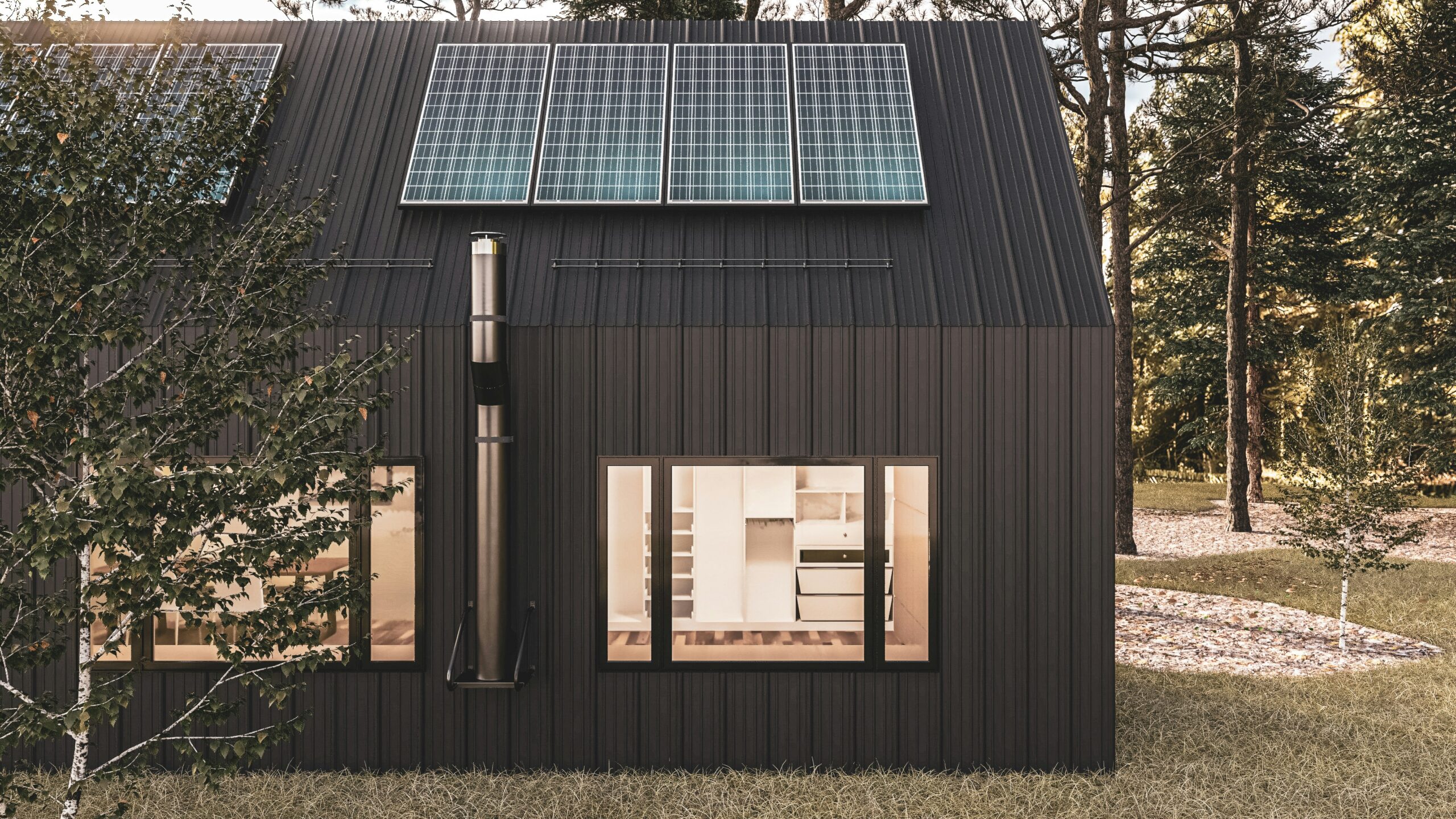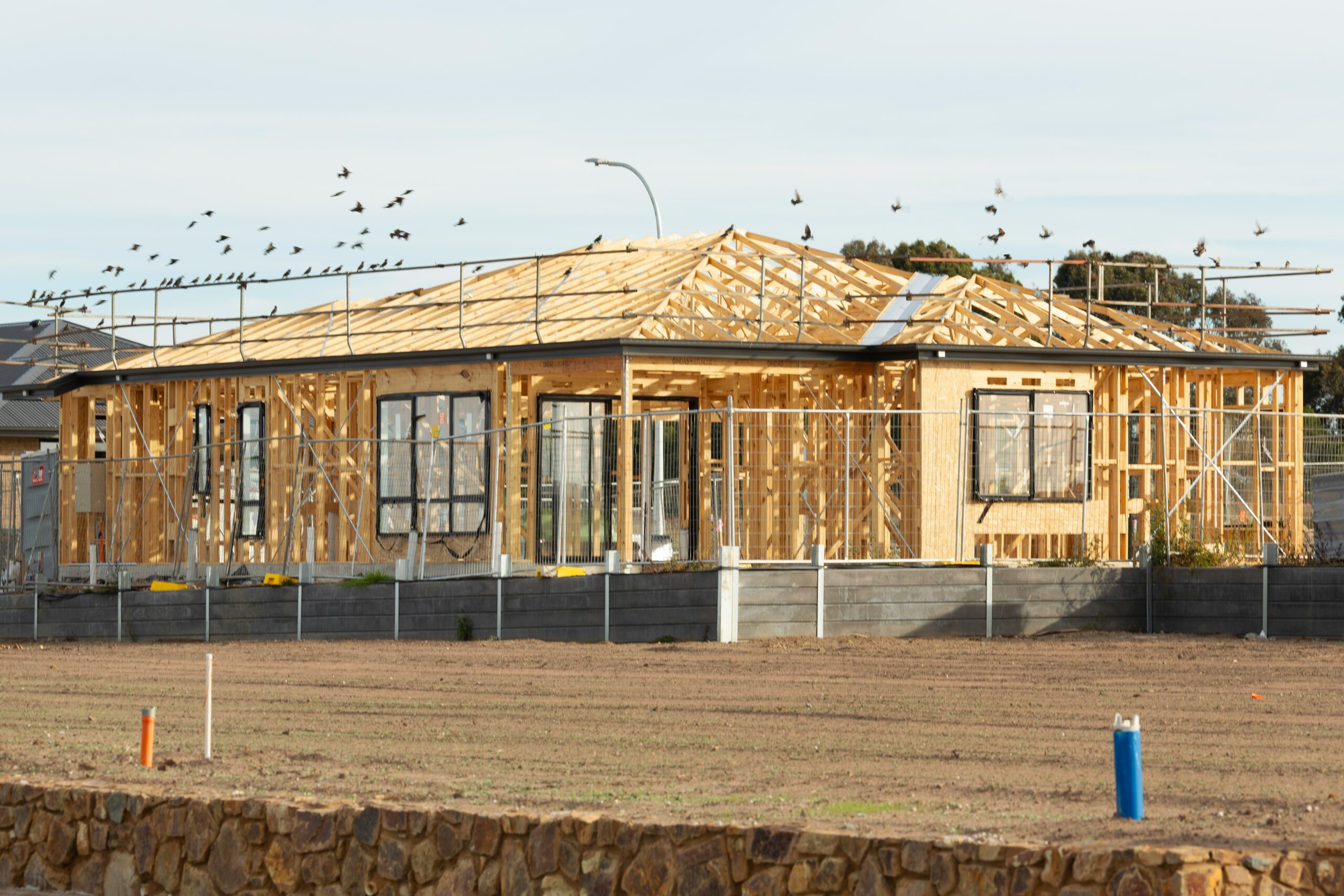Building a new custom home in Utah is exciting—you get the layout, features, and style you’ve always wanted. But beyond creating your dream living space, there’s another advantage many homeowners overlook: the tax benefits of building a new home.
From federal deductions to Utah’s property tax exemptions, building new can open the door to real financial savings. Here’s a clear guide to help you understand what’s available and how to plan ahead. (As always, consult with a qualified tax professional to see what applies to your specific situation.)

Federal Tax Benefits
Construction Loan Interest
If you finance your build with a construction loan, the IRS may allow you to deduct the interest for up to 24 months—so long as the home becomes your primary or secondary residence when completed. These deductions fall under the same limits as traditional mortgage interest.
Example: If you pay $40,000 in interest during construction and are in the 22% tax bracket, you could reduce your taxable income enough to save nearly $9,000 in federal taxes.
Mortgage Interest Deduction
When your construction loan converts into a permanent mortgage, the interest remains deductible under federal rules. Over the life of your loan, this tax deduction can provide consistent savings year after year.
Property Tax Deductions
Property taxes are deductible on your federal return if you itemize. As of 2025, the cap on state and local tax (SALT) deductions has been raised to $40,000—a major increase from the old $10,000 limit. This higher cap especially benefits Utah homeowners with larger properties or higher property tax rates.
Clean Energy & Renewable Energy Credits
The Energy Efficient Home Improvement Credit is for existing homes, but new-construction homeowners can still access the Residential Clean Energy Credit. This federal tax credit covers 30% of the cost of qualifying renewable energy systems like solar panels or solar water heating.
Why it matters in Utah: With abundant sunshine, adding solar during construction is usually cheaper and more efficient than retrofitting later. For a $20,000 solar installation, the credit could save you $6,000 on your tax bill.
Capital Improvements vs. Repairs
It’s important to know the difference. Upgrades that increase your home’s value—like adding square footage, finishing a basement, or installing energy-efficient windows—are considered capital improvements. These costs are added to your home’s basis, which can lower future capital gains tax when you sell.
Simple repairs (like repainting or fixing a leak), on the other hand, don’t qualify.
Home Office Deduction
If you run a business from home, designing a dedicated office during construction may allow you to claim the home office deduction. This applies if the space is used exclusively and regularly for business. It can cover a portion of your mortgage interest, property tax, utilities, and even depreciation.
Mortgage Insurance
If you’re required to carry private mortgage insurance (PMI) or mortgage insurance premiums, check current tax law. While deductibility has expired and been reinstated at various times, a tax professional can advise on whether it applies in your filing year.

Utah State Tax Benefits
Primary Residence Exemption
Utah offers one of the strongest property tax breaks in the nation: the Primary Residence Exemption, which reduces your taxable value by 45%.
Example: On a $600,000 home, you’d only be taxed on $330,000 of value. Depending on local property tax rates, this could mean savings of $2,000–$3,000 or more each year.
Utah Taxpayer Credit
Utah uses a credit system instead of traditional itemized deductions. The Utah Taxpayer Credit factors in your federal deductions and dependents, then reduces your state tax liability. While it phases out at higher incomes, it still provides meaningful tax advantages for many homeowners.
Utility Rebates & Energy Efficiency Incentives
Beyond federal credits, Utah utilities reward energy efficiency.
- Rocky Mountain Power’s Wattsmart program provides rebates for high-efficiency HVAC systems, insulation, and lighting.
- Dominion Energy’s ThermWise program offers rebates for gas appliances and efficiency upgrades.
These incentives stack with federal tax credits, helping offset upfront construction costs.

Local Tax Considerations
In Utah, property taxes are assessed as of January 1 each year. If your home is still under construction on that date, the improvements usually aren’t fully reflected until the following tax year. Depending on timing, this could lower your first tax bill.
Local property tax rates also vary—Northern Utah, Utah County, and Southern Utah can have different effective rates. It’s smart to ask your builder or county assessor about what to expect.
Other Helpful Strategies
- First-Time Buyer IRA Exception: Withdraw up to $10,000 from an IRA penalty-free to buy or build your first home (though income tax still applies).
- Standard vs. Itemized Deductions: With mortgage interest and property taxes, many new homeowners find itemizing beats the standard deduction ($15,000 single / $30,000 married filing jointly in 2025).
- Record Keeping: Save all loan statements, property tax bills, receipts for energy-efficient upgrades, and contractor certifications. Documentation is critical for deductions, credits, and future resale.

Long-Term Tax Benefits
Higher Cost Basis for Capital Gains
Building new sets a higher cost basis for your property, which reduces potential capital gains when you sell. Combined with the federal capital gains exclusion ($250,000 for singles, $500,000 for couples), this can significantly protect your profits.
Energy Efficiency Pays Twice
Designing for energy efficiency at the building stage means you save with credits now and with lower utility bills later. A home that’s near a zero energy ready home standard can cut energy use by 30–50%, making it a strong long-term investment.

Final Thoughts
The tax benefits of building a new home won’t look the same for everyone, but they’re worth factoring into your decision. Between federal deductions, Utah’s Primary Residence Exemption, and local incentives, these financial perks make building new in Utah a smart long-term strategy.
At Roots Builders, we believe in homes that support your lifestyle and your future. When paired with good planning and professional tax advice, your custom build can be both a dream home and a tax-smart investment.
Schedule a free consultation and let’s talk about designing a home that makes sense—inside, outside, and on your balance sheet.


